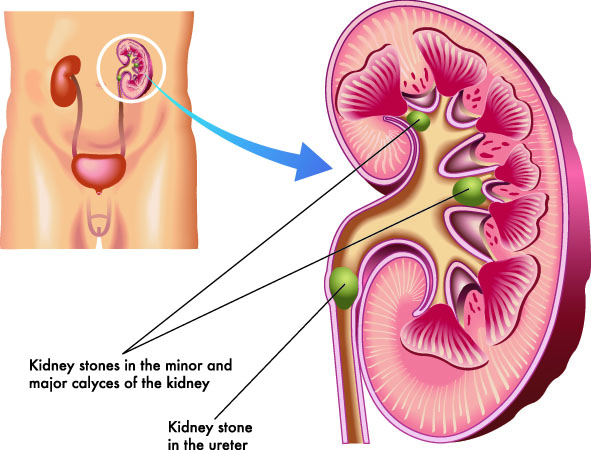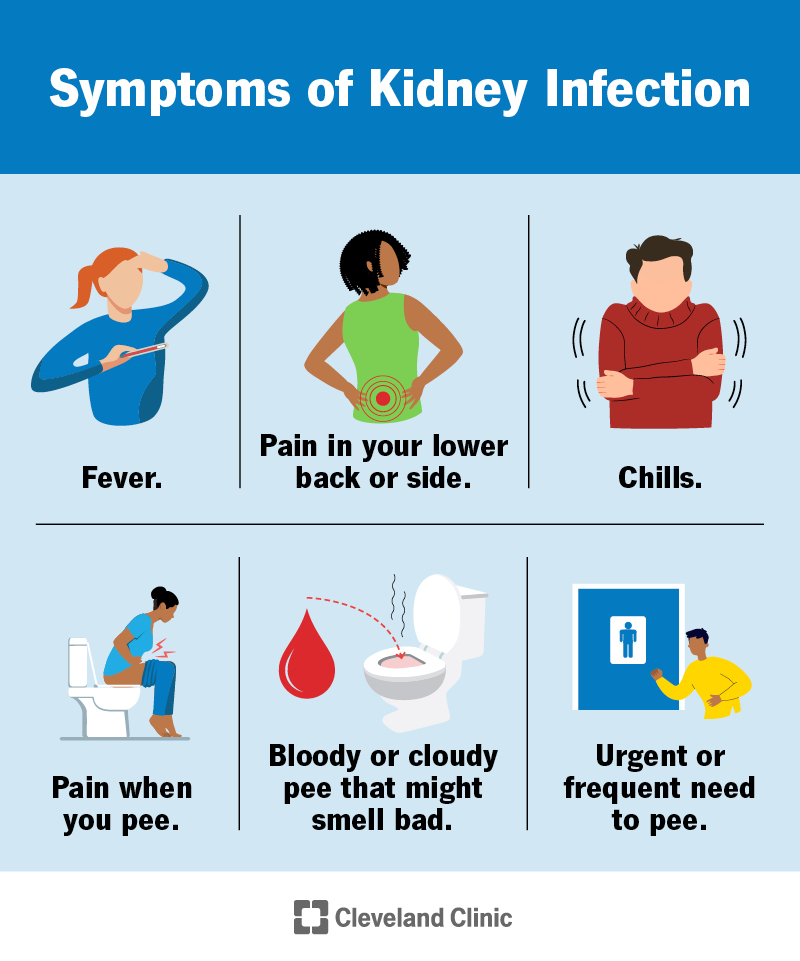Exploring the Effects and Causes of Kidney Stones in Contrast to Urinary Tract Infections: A Detailed Overview
The expedition of kidney stones and urinary system infections (UTIs) exposes a complex interplay of symptoms and underlying causes that necessitate cautious exam. While both problems can lead to hematuria, they provide distinctive medical functions and emerge from various etiological aspects. Understanding the subtleties of each condition is important for efficient medical diagnosis and monitoring. What are the essential distinctions in their signs, and exactly how might these inform therapy methods? The solutions to these questions may provide essential insights into the prevention and treatment of these usual urological issues.
Overview of Kidney Stones
Kidney stones, also referred to as kidney calculi, form when certain substances in the urine crystallize and aggregate, leading to the growth of tough down payments within the kidneys. These rocks can vary in size, ranging from a grain of sand to a golf round, and can be made up of numerous products, one of the most typical being calcium oxalate, uric acid, struvite, and cystine. The formation of kidney stones is affected by numerous aspects, consisting of dietary habits, fluid intake, and genetic predisposition.
Signs and symptoms of kidney rocks may include extreme discomfort in the back or side, blood in the urine, nausea, and regular urination, particularly as the rock relocates with the urinary system. Medical diagnosis commonly includes imaging research studies such as ultrasound or CT scans, alongside urinalysis to recognize the stone's composition.
Therapy choices vary based upon the size and type of rock, in addition to the severity of signs and symptoms (Kidney Stones vs UTI). Little stones might pass naturally with increased liquid intake, while bigger stones might need clinical treatments such as lithotripsy or surgical elimination. Understanding the pathophysiology and threat aspects linked with kidney stones is essential for efficient prevention and management
Overview of Urinary System Infections
Urinary tract infections (UTIs) are typical microbial infections that influence any part of the urinary system, consisting of the kidneys, ureters, bladder, and urethra. They mostly occur when microorganisms, frequently from the stomach system, enter the urinary system, causing swelling and infection. UTIs are classified into 2 main types: straightforward and complex. Uncomplicated UTIs commonly occur in healthy and balanced people with typical urinary systems, while complicated UTIs may develop in people with underlying conditions, such as architectural problems or compromised immune systems.
The frequency of UTIs is significantly higher in females than men, largely as a result of physiological differences, such as a shorter urethra. Danger aspects include sex-related activity, certain contraceptive approaches, urinary system retention, and dehydration. The diagnosis of UTIs is generally verified through urine examinations, which may disclose the visibility of bacteria, white blood cells, or red blood cells.

Symptoms of Kidney Stones
The discomfort associated with kidney rocks can manifest in different methods, commonly leading people to seek clinical attention. Among the most typical symptoms is serious pain, normally localized in the lower back or side, which may emit to the abdomen or groin. This discomfort, frequently called sharp or cramping, can happen instantly and might change in strength.
Additionally, individuals might experience hematuria, or blood in the pee, which can range from tiny quantities to visible discoloration. This symptom might be accompanied by changes in urinary system routines, such as increased regularity or necessity, as well as pain throughout peeing. Queasiness and vomiting are also common, usually arising from the body's response to intense pain.
In some cases, people may experience fever and cools, especially if an additional infection establishes as a result of the blockage brought on by the rocks. On the whole, the mix of severe discomfort, hematuria, modified urinary system patterns, and intestinal signs can offer substantial understanding into the existence of kidney stones, requiring timely medical evaluation and intervention. Understanding these signs and symptoms is important for timely medical diagnosis and effective monitoring of the problem.
Symptoms of Urinary Tract Infections
Infections within the urinary system tract often offer a variety of unique symptoms that can dramatically influence life. The most common symptoms include a relentless urge to pee, typically come with by a burning sensation during urination, called dysuria. Individuals might likewise experience enhanced regularity of urination, producing percentages of urine each time.
Various other remarkable signs include gloomy or fetid urine, which may suggest the presence of microorganisms or pus. In many cases, pee may show up red or pink due to the visibility of blood, a problem understood as hematuria. Furthermore, people might experience pelvic pain or pressure, which can even more intensify the feeling of necessity.
Systemic signs might additionally manifest, such as high temperature, cools, and tiredness, especially if the infection has actually risen to the kidneys. It is vital to acknowledge these signs early, as without treatment urinary system tract infections can bring about extra extreme complications. Kidney Stones More hints vs UTI. Trigger clinical interest is recommended when these signs are observed, enabling suitable diagnostic analysis and therapy to alleviate discomfort and avoid additional health issues
Causes of Each Problem
Often, kidney stones and urinary system tract infections emerge from distinct yet in some cases overlapping reasons that can affect people in a different way. Kidney rocks normally develop as a result of metabolic aspects, dietary choices, and about his genetic predispositions. Boosted degrees of calcium, oxalate, or uric acid in the pee can cause rock development. Dehydration, inadequate fluid consumption, and high-sodium diet plans can aggravate these problems, promoting crystallization within the urinary tract.

Comprehending these distinctive reasons is essential for avoidance and therapy. Kidney Stones vs UTI. While way of life alterations might mitigate the threat of kidney stones, ideal hygiene and prompt treatment of urinary system system infections are necessary for lowering their recurrence and associated problems
Conclusion
In recap, kidney stones and urinary system system infections existing distinct signs and symptoms and underlying causes. Kidney stones are characterized by serious discomfort and metabolic factors, while urinary system tract infections mostly involve bacterial infections leading to urinary seriousness and pain. Although both conditions can cause hematuria, their formation devices vary dramatically. Comprehending these differences is critical for efficient diagnosis and therapy, ultimately enhancing patient end results for those affected by either Go Here condition.
The expedition of kidney stones and urinary system tract infections (UTIs) exposes an intricate interplay of signs and symptoms and underlying causes that call for mindful exam.Urinary system system infections (UTIs) are common microbial infections that impact any kind of part of the urinary system, consisting of the kidneys, ureters, bladder, and urethra.Frequently, kidney stones and urinary system system infections occur from unique yet occasionally overlapping causes that can impact people in different ways.In recap, kidney rocks and urinary tract infections existing distinctive symptoms and underlying causes. Kidney rocks are identified by extreme pain and metabolic elements, while urinary tract infections primarily entail microbial infections leading to urinary system urgency and discomfort.
Comments on “Kidney Stones vs UTI: Specialist Insights on Effects, Analysis, and Management”